University of Michigan students set up tent encampment, demand divestment from Israel
About 8:30 p.m. Monday night, the Islamic call to prayer echoed through a speaker across the Diag, the center of campus at the University of Michigan in Ann Arbor. The Arabic words recited by observant Muslims reverberated off the historic academic buildings as Palestinian flags tied to flagpoles fluttered in the wind.
"Allahu Akbar," God is the greatest, a leader said as Muslims lined up near him, facing the direction of Mecca. "La ilaha illallah," There is no god but God. A few rows of men soon filed behind him and a row of women stood behind them as they performed at sunset the Maghrib prayer. In front read banners that said: "No $ For Genocide" and "Fund Our Education, Not the Occupation."
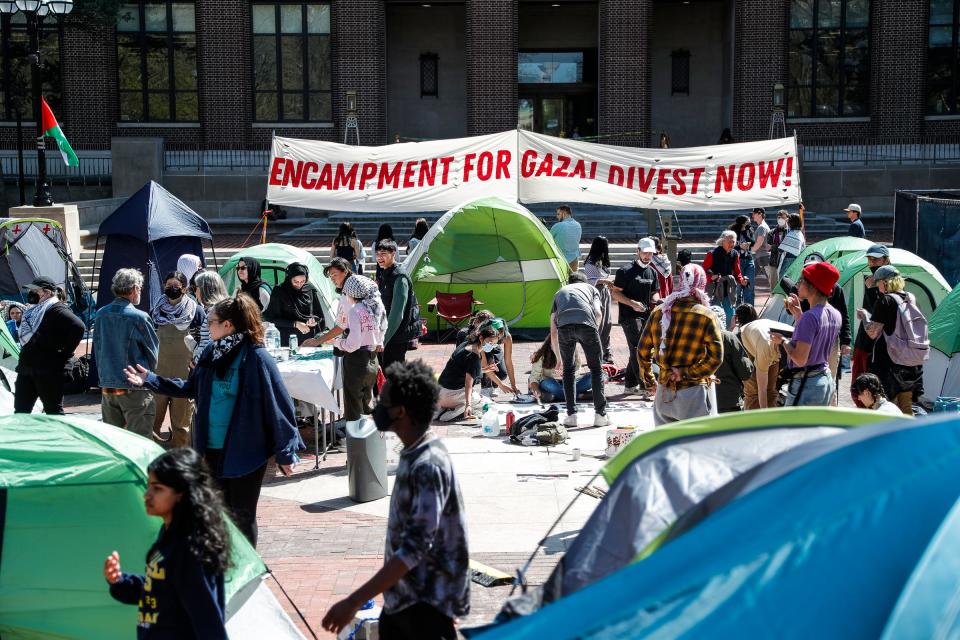
The scene at the heart of Michigan's largest university was part of the first day of an encampment of students calling for the university to divest from Israel over its military actions that have killed tens of thousands of Palestinians. About 25 tents were spotted by the Free Press on Monday night in the square in front of Hatcher Graduate Library. There were eight Palestinian flags flying from poles and a tree branch around the square with various banners and signs bearing messages in support of Palestinians. Two large banners read: "Encampment For Gaza! Divest Now!" and "Long Live The Intifada (uprising)." One banner strung up between branches on a tree read: "Liberated Zone."
A Michigan official warned the protesters they don't have the right to disrupt university activities.
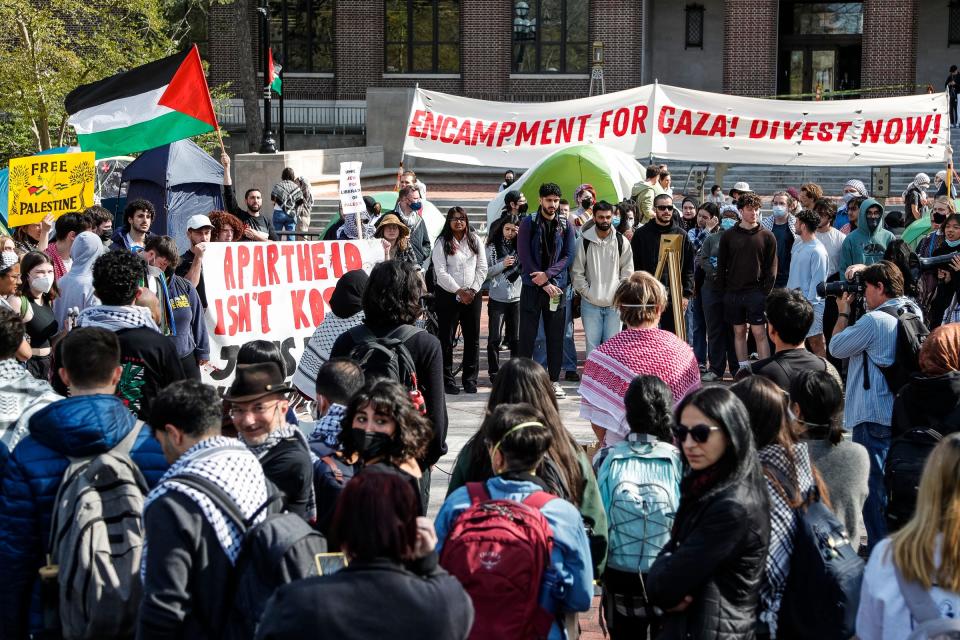
The encampment copied a similar encampment last week on lawns at Columbia University in New York City that led to police arresting more than 100 students, according to media reports and the Columbia Daily Spectator, a student newspaper staffed by undergraduates. The Columbia clash led to similar protests erupting at Yale, MIT and now the University of Michigan.
The protest on Monday was organized by the Tahrir Coalition, reported student paper The Michigan Daily. The group has been organizing demonstrations on campus in support of Palestinians in recent months, including one last month that shut down an annual honors ceremony. A message sent to the Tahrir Coalition was not returned Monday. The group wants the university to divest, which may be difficult in Michigan since a law enacted in 2017 forbids state contracts with anyone who supports divestment from Israel. Jewish groups have been releasing statements criticizing some of the protests, including the one that started Monday.
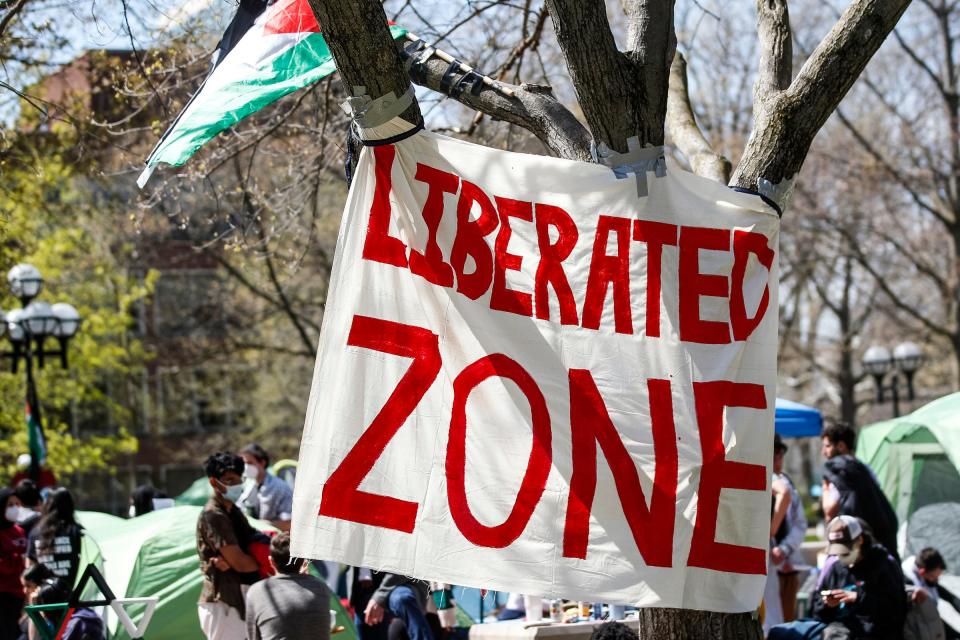
During the protests Monday, University of Michigan police officers and some Michigan State Police troopers quietly observed from vehicles around the Diag at a distance. There did not appear to be significant encounters between police and demonstrators.
Some Jewish students who oppose Israel's military actions also took part Monday in the Diag protests and were scheduled to hold a Passover Seder, a religious dinner observant Jews hold during Passover, which started Monday night. Inside the encampment, a poster read: "Apartheid isn't Kosher, Jews Demand Divestment!!" Underneath, it said in chalk on the pavement: "UM (University of Michigan) Funds Genocide." There were also Muslim and Jewish prayers at the encampment at Columbia.
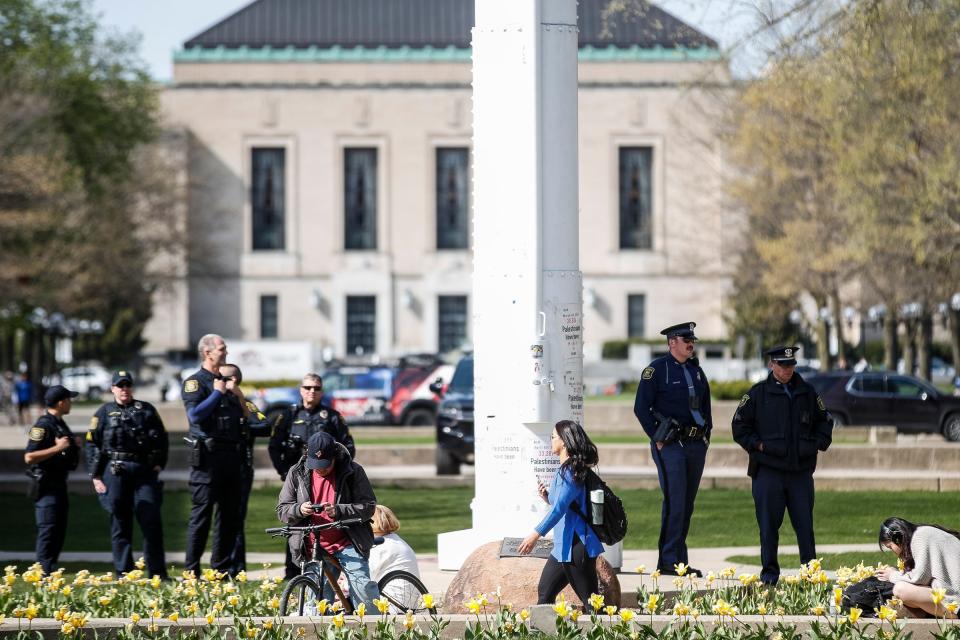
There was also a small group of counter-protesters waving Israeli flags who said some of the slogans of the pro-Palestinian protesters were antisemitic.
A spokesperson for the University of Michigan, Colleen Mastony, said in a statement to the Free Press that on Monday morning, "20 tents were placed on the main quadrangle, known as the Diag."
Mastony, the university's assistant vice president for public affairs, said "students are able to engage in peaceful protest in many places on campus," but added that "the university has a responsibility to maintain an environment that is conducive to learning and academic success."
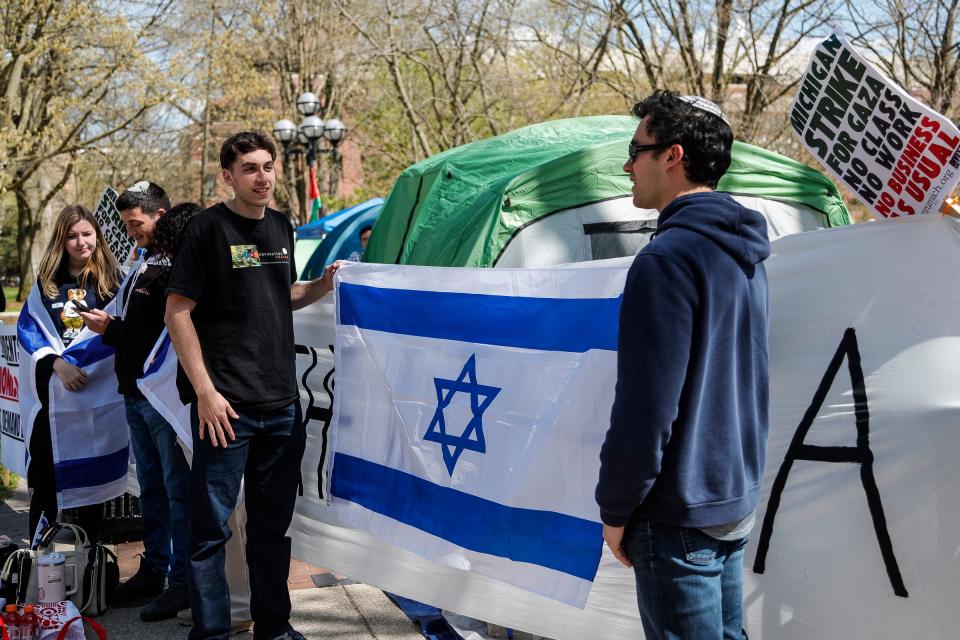
"No one has the right to substantially disrupt university activities or to violate laws or university policies," the university spokeswoman added. "We are working to minimize disruptions to university operations – most especially with classes ending tomorrow and the study period beginning before finals. Safety is always a key priority and, as such, we have increased security on campus. We are carefully monitoring the situation and remain prepared to appropriately address any harassment or threats against any member of our community."
Regarding calls for divestment, Mastony said "the university has had a policy in place for nearly 20 years that shields the university's investments from political pressures. Much of the money invested through the university’s endowment, for example, is donor funding given to provide long-term financial support for designated purposes. The Board of Regents reaffirmed its position earlier this year."
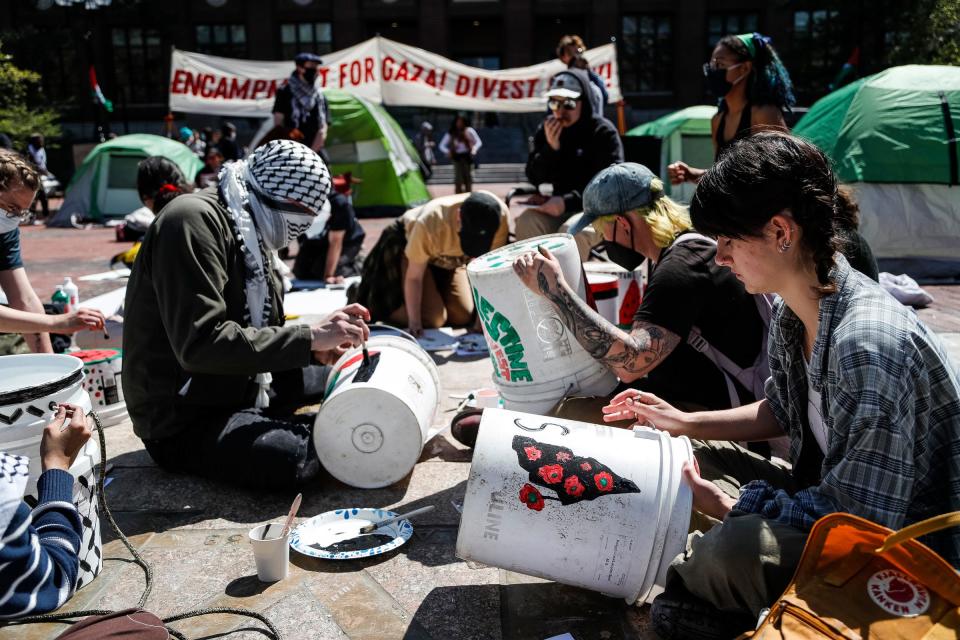
Other pro-Palestinian protests continue to be held in metro Detroit. Last week, Detroit Police stopped a caravan and ticketed several protesters who were reportedly headed to the Ambassador Bridge and may have been attempting to shut it down, reported WXYZ-TV. Detroit Police said in a statement they ticketed 38 people who took part in the caravan, impounded five cars and arrested four people. On that same day, April 15, protesters shut down access to the Golden Gate Bridge in San Francisco and Chicago O'Hare Airport. Detroit Police said they had been monitoring the protesters when they started their caravan from Dearborn. Video footage shows a significant police presence stopping the vehicles, questioning passengers, and making at least one arrest.
At about 10 p.m., a group of Muslims gathered again in the Diag to perform nightly prayers known as Isha. They lined up on the opposite site of where they held sunset prayers. A movie played on on a screen on the steps of the Hatcher library as they prayed.
Contact Niraj Warikoo: [email protected] or X @nwarikoo.
This article originally appeared on Detroit Free Press: Michigan students set up tent encampment, call for Israel divestment
